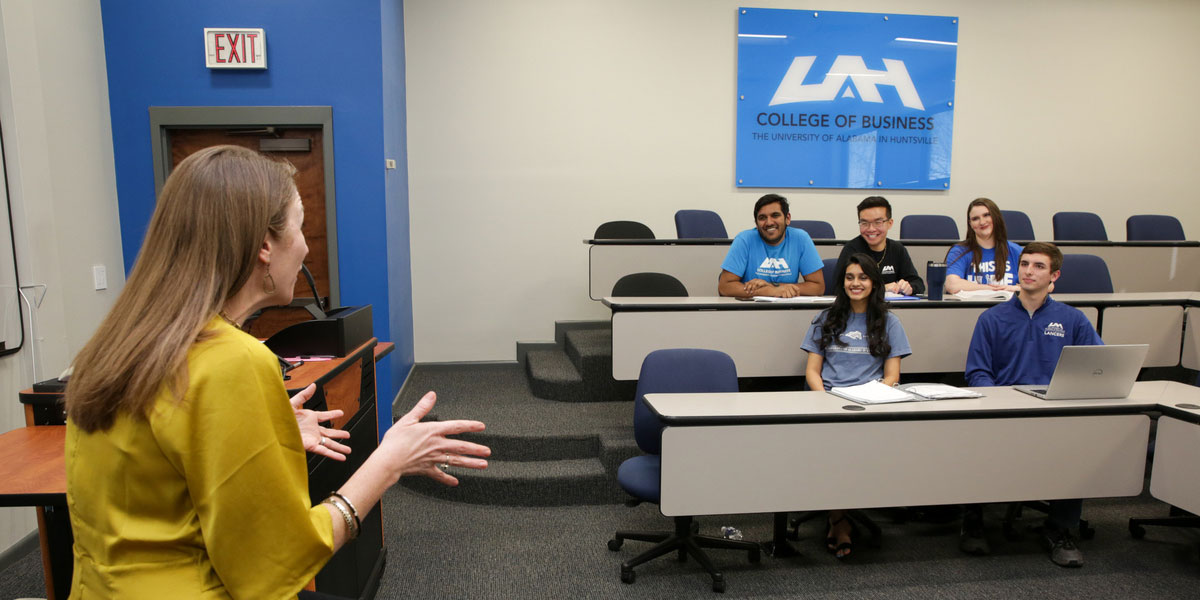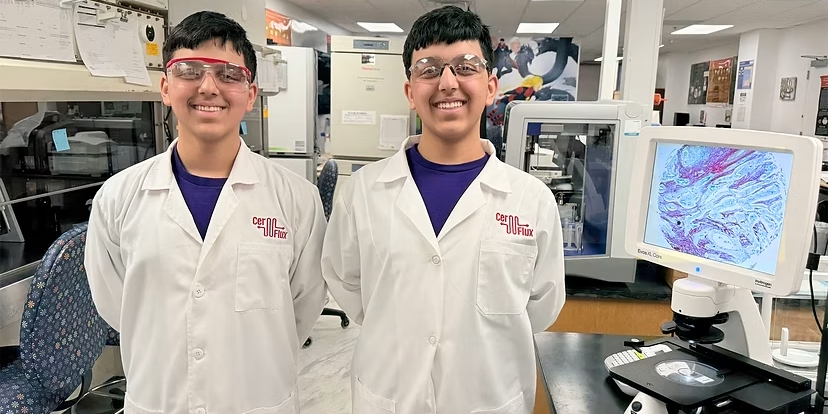Recognizing the potential benefits of using artificial intelligence in the classroom, the University of Alabama in Huntsville has developed resources to help faculty and students incorporate this cutting-edge technology in ethical, responsible and effective ways to enhance learning.
The new guidance goes into effect this semester.
“Part of our mission at UAH is to educate individuals in innovation and critical thinking,” said Dr. Michelle Greene, director of the Enhanced Teaching and Learning Center at UAH. “Artificial intelligence does not replace the need to learn material or think critically.”
Greene, who is also a lecturer in the Department of Chemistry, led the campus task force that compiled AI resources and guidelines for faculty and students.
“Because AI provides everyone with tools to do certain tasks quicker and easier, we are providing resources to help the faculty figure out what role AI can play in the classroom and in the future lives of our students,” she said.
“It is our responsibility to give students the knowledge and experience to ask the right questions and ethically incorporate new technologies into their lives.”
ChatGPT is just one of many AI tools available to faculty and students. It is designed to create human-like conversation in natural language to answer user questions. Other AI tools focus more directly on academic research, including Consensus, designed to extract information from scientific research to offer evidence-based answers, and Research Rabbit, a citation-based literature mapping tool designed to reduce search time for sources.
UAH’s general AI guidelines point out that users of these tools should be aware that they are prone to inaccuracy and that all answers should be independently verified by users for accuracy in content and documentation.
Teaching guidelines offer examples of how AI tools and their products could be incorporated into assignments as well as discussion or debate topics:
-
Ask students to prompt ChatGPT to explain a concept from class then critique the answer given.
-
Ask students to analyze or improve products created by generative AI.
-
How might the improvement of AI models lead to changes in the job market that awaits you after graduation?
-
What sorts of privacy concerns should users have related to AI data collection?
It is up to faculty to decide whether AI will be used in their courses. If AI is allowed, faculty may restrict its use to certain assignments or may let it be used without restrictions. Faculty must make their classroom policies related to AI use clear and accessible to students.
Whenever AI is used, it must be properly documented and cited in all student work. Students who violate the AI policy will be subject to disciplinary action for academic misconduct.













